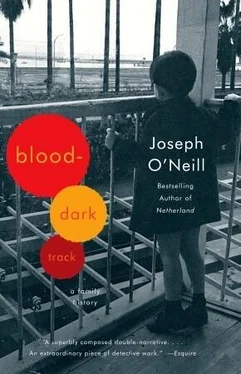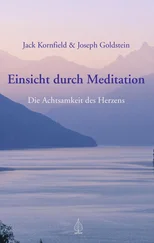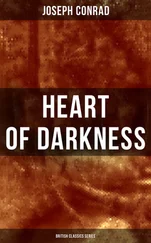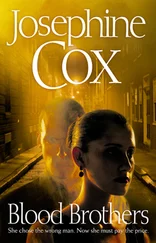Evidently, just as centuries of hostile interrelations had done little or nothing to humanize Syrians and Armenians and Turks in each other’s eyes, so it was with the Protestants and Catholics of West Cork, who, in Con Conner’s euphemistic phrase, lived in their own little worlds. I had always known that the Bandon valley Protestants, tainted by a reputation for extreme bigotry, formed one of the most resented of the seventeenth-century plantation settlements, but I’d never really contemplated the political effects of the animosity and had roughly assumed that, somehow or other, nationalism’s uplifting tenets elevated its adherents from sectarian emotions. In fact, the April massacre and the Catholic community’s response to it — silence and more violence — suggested that the opposite was true: that nationalism simultaneously nurtured and concealed a capacity in ourselves for a hatred as powerful as that which led to the oblivion of the Armenians.
All of which explained how Tadhg Lynch could commit a sectarian killing without him — or, decades later, me — seeing it for what it was; and why Tadhg and Angela and Joe Collins were prompted to pick out a Protestant for death: because, at some level, they must have sensed that the killing of a prominent Protestant would sound, after the IRA’s years of military inactivity, like a tribal siren.
It was precisely this primitivism that so disturbed the Catholic public at the time. Had Somerville ignored a warning, the killing could have been shaped into a story of hard but fair play; but the absence of warning left the community face to face with its sectarian demons — a prospect so haunting that even Tom Barry disassociated himself from an action he himself had sanctioned. In the event, a communal exorcism was performed by a deft act of narrative. By repeated references to anti-unionist episodes in his ancestry and to the fact that he never engaged in active recruitment, the Admiral was cast as a quasi-nationalist good old boy. There was, of course, no direct mention of his religion. The actual, nuanced identities of this Protestant, unionist Anglo-Irishman were blotted out like the shadows of a man under floodlights.
Naturally, public outrage over Admiral Somerville quickly died out. There were no songs written about him or bars named after him or annual commemorations instigated. His ghost, unlike the ghosts of the patriot dead, did not make demands on the consciences of the living.
As it happened, Boyle Somerville was a great enthusiast of ghosts and paranormal phenomena. His interest was shared by his sister Edith, who believed that during the Civil War, when republicans posed a grave threat to the family and its properties, her late uncle Kendal Coghill had organized the spirits of bygone Somervilles and Coghills into a squadron that protected their living kin. After his retirement from the Royal Navy, the Admiral decided to specialize in the field of psychometry, a method of communication with the dead in which the medium makes use of some object or place closely associated with a deceased person. Boyle agreed to put his particular skill at the disposition of Edith, who planned to write a family history, and to contact their deceased ancestors on her behalf; but he was shot before he was able to help her in this way. Edith Somerville was undeterred. She invoked Boyle’s co-operation from beyond the grave and incorporated into her book information about the family that her brother’s spirit had been able to convey to her. In acknowledgement of his ghostly input, she credited him as co-author of Records of the Somerville Family (1940).
A glance at this book informed me that the Somervilles came to Ireland in 1692, in the aftermath of the final defeat of the Catholic rebel army of James Stuart by the forces of the Protestant King William of Orange. This was the time of the introduction of the Penal Laws, which prohibited Catholics from voting, holding office, practising law, teaching, owning a horse worth more than five pounds, receiving an education at a Catholic school, or leaving land to a single son. The Somervilles themselves arrived as refugees from religious persecution by Catholics in Scotland, and it occurred to me that Admiral Somerville in this sense resembled Joseph Dakak, whose family had likewise come to Mersin in response to religious oppression. Admiral Somerville, like Joseph, belonged to a rich and profoundly self-sufficient religious minority with a tradition of looking on the national majority as an unfrequentable, undifferentiated and largely negligible mass. Like Joseph, Somerville made gestures of goodwill to the majority group (for example, making donations to St Vincent de Paul Society) but insisted on retaining his ethnic and cultural distinctiveness, including his military title, which, like Joseph’s adopted surname of Dakad, had the effect of associating him very closely with recent imperial oppressors. Both men were self-cultivating types with an interest in history. Both relied on unreliable nationalist assurances of their equal citizenship. And finally, both failed to appreciate the appearance of their actions in the eyes of men who saw the world through nationalist eyes, men like Tadhg Lynch and, of course, Jim O’Neill. An unsettling scenario of shadows presented itself: if one substituted Joseph Dakak for his double, Somerville, and Jim O’Neill for Tadhg Lynch, one was left with the scenario of Jim shooting Joseph dead.
I had never really invested the image of my moonlighting grandfather with political significance. But now, when I imagined him walking through the black fields of West Cork, net in hand, or tracking the dark water with his sons, I associated his hand-me-down knowledge of river currents, mudbanks, copses, and salmon pools with another West Cork inheritance. Included in the birthright and estate of my grandfather, who never came into Ardkitt or Graunriagh, was a tutelary hatred that imprisoned him long before, and long after, the Curragh. I now understood what had frightened my father on those nights when Jim O’Neill took him out to the river; it was his patrimony.
New York, May, 2000
Freedom, a new life, resurrection from the dead.… What a glorious moment!
— Fyodor Dostoevsky, The House of the Dead
One evening in the last December of the twentieth century, I pulled down an old, blood-red Cassell’s French — English dictionary from a bookcase in my mother’s house. It was a battered volume, and the hardback cover, which had come loose at some point, was raggedly taped together. I looked up the word I was after and then, as I was shutting the book, noticed the following written (in English) in Joseph’s handwriting on the inside of the back cover:
J. Dakak, Mersin, Turkey
No matter what we have suffered and what we have undergone, we must try to forgive those who injured us and only remember the lessons gained thereby.
Mrs Chiang Kay-Shek.
To my surprise, it was my father who was able to tell me something about this inscription: nearly forty years ago, in the course of a solemn discussion about Roger Casement and Terence MacSwiney, Joseph Dakak retrieved the Cassell’s dictionary and pointed out the quotation to him. He was, my father said, suggesting a connection between himself and Casement and MacSwiney.
This suggestion — incidentally, Joseph wasn’t aware that Kevin O’Neill’s father was also an ex-internee — was intriguing but unconvincing. I couldn’t see how his internment — the result of a misconceived business trip — bore comparison with the ideology-driven self-sacrifice of the two Irishmen except in the very broad sense of an undeserved personal calamity suffered at the hands of the British. That Joseph had constructed a heroic, blameless version of his past was not surprising, but it did leave me wondering about the lessons he claimed to have learned from his experiences. The fact was, neither Joseph nor Jim significantly changed their outlook and approach to life after the war. Joseph remained culturally assertive — assertive enough to complain to young Christians whom he overheard speaking Turkish that they were wasting their education at French-speaking schools — and socially conspicuous and entangled with the powers-that-be. He became the secretary of the Mersin Tourist Association, served as an honorary interpreter for two provincial governors, who were very good friends of his, and embarked on the ambitious modernization of the hotel. And he continued to keep silent on the subject of the Armenians. Back in Cork, meanwhile, Jim went back to his old life: providing for his family, poaching, working hard. His raging republican animus remained intact, and although he never rejoined or took part in active service, Jim regained his faith in the Irish Republican Army. Likewise, Joseph regained his faith in the possibilities of Turkish citizenship and, for that matter, life in Mersin — to which, I belatedly realized, he was as attached as Jim was to West Cork. In short, my grandfathers consigned their internments to the past and to silence.
Читать дальше
Конец ознакомительного отрывка
Купить книгу












